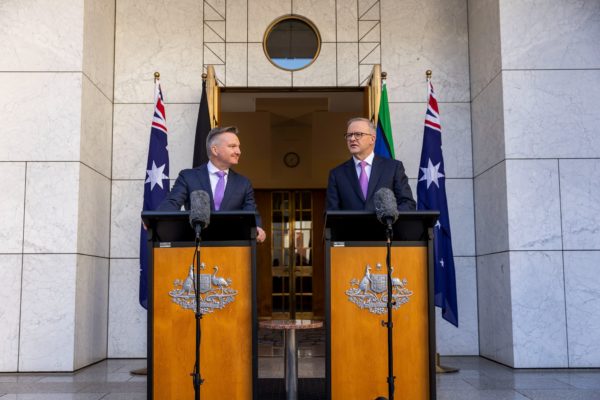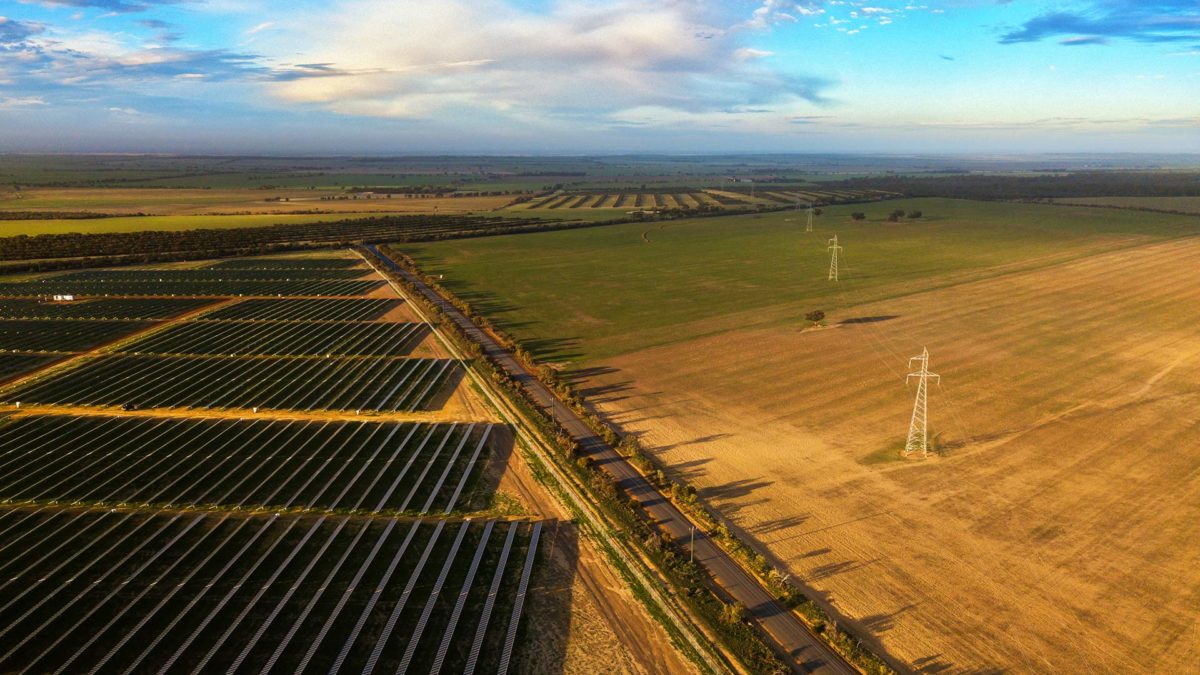The Labor Party’s climate change bill has officially passed parliament, paving the way for a 43% carbon emission reduction target by 2030 and goal of net-zero emissions by 2050 to become law.
The bill passed the Senate on Thursday afternoon, with amendments from independent senator David Pocock, before being passed by the House of Representatives hours later. It now only needs the signature of the Governor General to become law.
Climate Change and Energy Minister Chris Bowen said the passage of the bill provided certainty to investors and strengthened transparency and accountability for future governments.
“It’s the certainty that business and investors have been asking for,” he said. “It provides a message to renewable energy investors, storage investors and transmission investors right around the world that Australia is open for business.”
The legislation formalises Labor’s climate change agenda which includes a commitment to ensure Australia’s energy grid is comprised of 82% renewables by 2030.
It will update Australia’s climate obligations under the Paris Agreement, improving on the previous administration’s 26–28% target and committing to a 43% emissions reduction by 2030 and net zero by 2050.
It also includes increased accountability with the climate change minister to provide an annual update to parliament on the progress being made towards achieving the targets.
It also hands authority back to the Climate Change Authority to monitor Australia’s progress towards the targets, and advise on future climate goals, including the government’s 2035 emissions target. Agencies including the Australian Renewable Energy Agency (ARENA), the Clean Energy Finance Corporation (CEFC), Infrastructure Australia and the Northern Australia Infrastructure Facility will embed amended targets in their objectives and functions.

Image: Anthony Albanese / Twitter
“Legislating these targets gives certainty to investors and participants in the energy market and will help stabilise our energy system,” Bowen said. “It also strengthens transparency and accountability through the annual climate change statement and will ensure public debate informs government decisions.”
The move has been welcomed by several groups, including the Australian Energy Council, Business Council of Australia, and the Australian Chamber of Commerce and Industry.
Management consultancy firm Partners in Performance (PiP) also welcomed the commitment to a more ambitious target for 2030 but warned the real work in transitioning to renewable sources of energy begins now.
In a nation where fossil fuels provided 67% of electricity in 2021, the faster pace to decarbonise will bring several challenges with it, said Rob Fowler, a partner in the Energy Transition practice at PiP.
“Australia is waking up to the challenges and the opportunities of rapidly reducing carbon emissions across the economy,” he said.
Fowler said the sentiment to decarbonise is there among investors, the technology is available, and Australia has the smarts to drive the transition faster and cheaper than we thought possible, but there is no time to waste.
“With just 87 months until 2030 begins, Australia has an enormous amount of work to do, and a huge dose of uncertainty to digest,” he said. “The sooner we get on with combining and deploying the finance, technology and smarts at our disposal, the sooner we will truly see the green mining, green metals and green basic chemicals that our net-zero future undoubtedly demands.”
This content is protected by copyright and may not be reused. If you want to cooperate with us and would like to reuse some of our content, please contact: editors@pv-magazine.com.









By submitting this form you agree to pv magazine using your data for the purposes of publishing your comment.
Your personal data will only be disclosed or otherwise transmitted to third parties for the purposes of spam filtering or if this is necessary for technical maintenance of the website. Any other transfer to third parties will not take place unless this is justified on the basis of applicable data protection regulations or if pv magazine is legally obliged to do so.
You may revoke this consent at any time with effect for the future, in which case your personal data will be deleted immediately. Otherwise, your data will be deleted if pv magazine has processed your request or the purpose of data storage is fulfilled.
Further information on data privacy can be found in our Data Protection Policy.